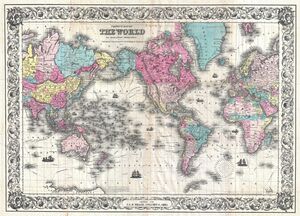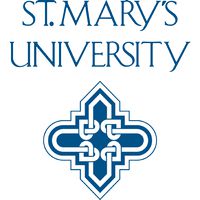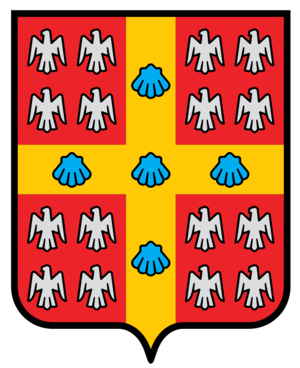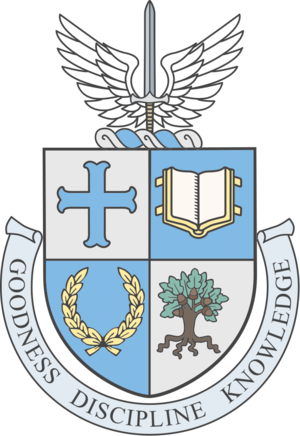1852
Jump to navigation
Jump to search
1842 < 1843 < 1844 < 1845 < 1846 < 1847 < 1848 <1849 < 1850 < 1851 < 1852 > 1853 > 1854 > 1855 > 1856 > 1857 > 1858 > 1859 > 1860 > 1861 > 1862
 The world in 1852 | |
| year 1852 |
Contents
Events =
January–March
- January 14 – President Louis-Napoléon Bonaparte proclaims a new constitution for the French Second Republic.
- January 15 – Nine men representing various Jewish charitable organizations come together, to form what will become Mount Sinai Hospital in New York City.
- January 17 – The United Kingdom recognizes the independence of the Transvaal.
- February 3 – Battle of Caseros, Argentina: The Argentine provinces of Entre Rios and Corrientes, allied with Brazil and members of Colorado Party of Uruguay, defeat Buenos Aires troops under Juan Manuel de Rosas.
- February 11 – The first British public toilet for women opens in Bedford Street, London.
- February 14 – The Great Ormond Street Hospital for Sick Children, London, admits its first patient.
- February 16 – The Studebaker Brothers Wagon Company, precursor of the automobile manufacturer, is established in South Bend, Indiana.
- February 19 – Phi Kappa Psi fraternity was founded in Canonsburg, PA at Jefferson College.
- February 25 – Template:Ship sinks near Cape Town, British Cape Colony. Only 193 of the 643 on board survive, after troops stand firm on the deck, so as not to overwhelm the lifeboats containing women and children.
- March 1 – Archibald Montgomerie, 13th Earl of Eglinton is appointed Lord Lieutenant of Ireland.
- March 2 – The first American experimental steam fire engine is tested.
- March 4 – Phi Mu sorority is founded in Macon, Georgia.
- March 17 – Annibale De Gasparis discovers in Naples the asteroid Psyche from the north dome of the Astronomical Observatory of Capodimonte.
- March 18 – Henry Wells and William Fargo created Wells Fargo & Company.
- March 20 – Uncle Tom's Cabin, by Harriet Beecher Stowe, is published in book form in Boston.
April–June
- April 1 – The Second Anglo-Burmese War begins.
- April 18 – Taiping Rebellion: Taiping forces begin the siege of Guilin.
- May 19 – Taiping Rebellion: The siege of Guilin is lifted.
- June 12 – Taiping Rebellion: Taiping forces enter Hunan.
July–September
- July 1 – American statesman Henry Clay is the first to receive the honor of lying in state, in the United States Capitol rotunda.
- July 5 – Frederick Douglass delivers his famous speech, "What to the Slave Is the Fourth of July?", in Rochester, New York.
- July 28 – Henry Clay steamboat disaster in Riverdale, Bronx, claims several lives, including Stephen Allen.
- August 3 – The first American intercollegiate athletic event, the Boat Race between Yale and Harvard, is held.
- September 11 – Revolution of 11 September 1852 in Argentina: Buenos Aires Province declares independence.
- September 19 – Annibale de Gasparis discovers the asteroid Massalia from the north dome of the Astronomical Observatory of Capodimonte in Naples.
- September 24 – French engineer Henri Giffard makes the first airship trip, from Paris to Trappes.
October–December
- October 7 – After learning that U.S. President Fillmore has sent Commodore Matthew C. Perry, to open trade with Japan, Nicholas I of Russia sends Rear Admiral Yevfimy Putyatin to lead the Pallada on a similar mission (Putyatin arrives on August 21, 1853, one month after Perry).
- October 16 – After nearly five years' imprisonment in France, former Algerian Emir Abdelkader El Djezairi is released by orders of then-president Louis-Napoléon Bonaparte.
- October 23 – The conjecture of the four color theorem is first proposed, as student Francis Guthrie of University College London presents the question of proving, mathematically, that no more than four colors are needed to give separate colors to bordering shapes on a map (the theorem is not proven for almost 123 years, until 1976).
- October 31 – General Joaquin Solares of Guatemala leads an invasion of neighboring Honduras, beginning a war that lasts until February 13, 1856.
- November – Leo Tolstoy's debut novel Childhood is published under the initials L. N., in this month's issue of the Saint Petersburg literary journal Sovremennik (and later in book form).
- November 2 – 1852 U.S. presidential election: Democrat Franklin Pierce of New Hampshire defeats Whig Winfield Scott of Virginia.
- November 4 – Camillo Benso, Count of Cavour becomes the Piedmontese prime minister.
- November 11 – The new Palace of Westminster opens in London.
- November 21–22 – The New French Empire is confirmed by plebiscite: 7,824,000 for, 253,000 against.
- November 23 – The first roadside pillar boxes in the British Isles are brought into public use in Saint Helier, on Jersey in the Channel Islands, at the suggestion of English novelist Anthony Trollope, at this time an official of the British General Post Office.
- December – The Western Railroad is chartered to build a railroad from Fayetteville, North Carolina to the coal fields of Egypt, North Carolina.[1]
- December 2 – Napoleon III becomes Emperor of the French.
- December 4 – The French capture Laghouat.
- December 23 – Taiping Rebellion: The Taiping army takes Hanyang and begins the siege of Wuchang.
- December 29 – Taiping Rebellion: The Taiping army takes Hankou.
Date unknown
- The grooved rail is developed by Alphonse Loubat.
- The Devil's Island penal colony opens in the colony of French Guiana.
- The semaphore line in France is superseded by the telegraph.
- Smith & Wesson is founded as a firearms manufacturer in the United States.
- In Hawaii, sugar planters bring over the first Chinese laborers on 3 or 5 year contracts, giving them 3 dollars per month plus room and board for working a 12-hour day, 6 days a week.
- Germans are encouraged to immigrate to Chile.
- The British Inman Line is the first to offer United States-bound migrants steerage passage in a steamer, Template:SS.
- Loyola College is chartered in Baltimore, Maryland.
- Antioch College is founded in Yellow Springs, Ohio (its first president is Horace Mann).
- Mills College is founded as the Young Ladies Seminary in Benicia, California.
- The French Catholic De La Salle Brothers arrive from Europe in Singapore, aboard La Julie, and sail up to Penang in the Straits Settlements, to found the first Lasallian educational institutions in Asia.
- Justin Perkins, an American Presbyterian missionary, produces the first translation of the Bible in Assyrian Neo-Aramaic, which is published with the parallel text of the Syriac Peshitta, by the American Bible Society.
Events
| Event | Start | End |
|---|---|---|
| Pax Brittanica | 1815 | 1915 |
| Victorian era | 1840 | 1901 |
New Groups
| Group | Image | Type | Description |
|---|---|---|---|
| St. Mary's University |  | Texas Catholic university | |
| Université Laval |  | Public | University in Québec City, Québec, Canada. |
| University of St. Michael's College |  | Catholic college of the University of Toronto. |
A Death
| Title | Born | Died | Summary | Description |
|---|---|---|---|---|
| Arthur Wellesley | 1 May 1769 | 14 September 1852 | Soldier Politician | The Duke of Wellington |
Births
| Title | Born | Place of birth | Died | Summary | Description |
|---|---|---|---|---|---|
| Reginald Brett | 30 June 1852 | 22 January 1930 | Historian Deep politician | A member of the Milner Group/Society of the Elect. | |
| Herbert Asquith | 12 September 1852 | United Kingdom West Riding of Yorkshire Morley UK | 15 February 1928 | Politician | UK PM from 1908 1916 |
| Flora Shaw | 19 December 1852 | 25 January 1929 | Author Journalist Deep state operative | UK deep state operative who coined the name "Nigeria". |
Many thanks to our Patrons who cover ~2/3 of our hosting bill. Please join them if you can.